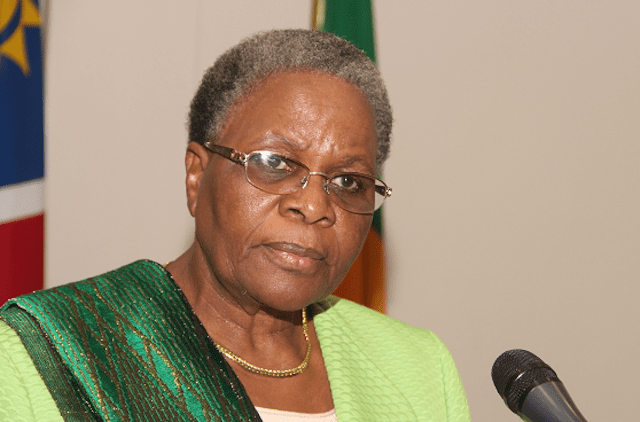Netumbo Nandi-Ndaitwah has made history as Namibia’s first female president, securing 58.1 percent of the vote in a competitive election.
Her main rival, Panduleni Itula of the Independent Patriots for Change, received 25.8 percent of the ballots.
Despite the election being marred by allegations of electoral fraud from opposition parties, Nandi-Ndaitwah’s victory marks a significant milestone in Namibian politics.
But who is Netumbo Nandi-Ndaitwah?
Born on 29 October 1952 in Onamutai, northern Namibia, Nandi-Ndaitwah is the daughter of Justina Nekoto Shaduka-Nandi and Petrus Nandi.
As the ninth of 13 children, she grew up in a household led by her father, an Anglican clergyman.
Her early education took place at the prestigious St Mary’s Mission School in Odibo where she later worked as a teacher.
Nandi-Ndaitwah’s political consciousness was shaped by her upbringing as she witnessed SWAPO activities in her community.
“Growing up, political activities were also not very far from me… They would come near our house to hold meetings because there were big trees for shade.”
After Namibia’s independence, she navigated her way through the government ranks, advocating for greater legal protections for women and children and earning recognition for her environmental initiatives.
However, her path to leadership was not without obstacles.
Following the 2012 SWAPO congress, she aimed to become Namibia’s first female vice president, a position that was part of a political deal to secure support for former President Hage Geingob’s leadership.
When Geingob ultimately reneged on this agreement, Nandi-Ndaitwah’s supporters rallied to advocate for a combined role as Deputy Prime Minister and Minister of International Relations.
Despite these challenges, Nandi-Ndaitwah’s perseverance and commitment to her principles have paved the way for her historic presidency.
As she steps into this new role, Nandi-Ndaitwah not only embodies a significant breakthrough for women in politics but also carries the weight of expectation for continued progress in gender equality and social justice in Namibia.
JN/APA


